Spelling improvement Writing Worksheets for Ages 3-7
5 filtered results
-
From - To
Boost your child’s spelling skills with our engaging Spelling Improvement Writing Worksheets, designed specifically for ages 3 to 7! These fun and interactive worksheets help young learners enhance their vocabulary and spelling abilities through colorful images and easy-to-follow exercises. Each worksheet is tailored to foster creativity and reinforce essential language skills, making learning enjoyable for preschoolers and early elementary students alike. With step-by-step activities, your little ones will practice handwritten spelling, word recognition, and basic sentence structure while building confidence in their writing. Perfect for at-home learning or classroom use, our worksheets are a delightful tool for budding writers!
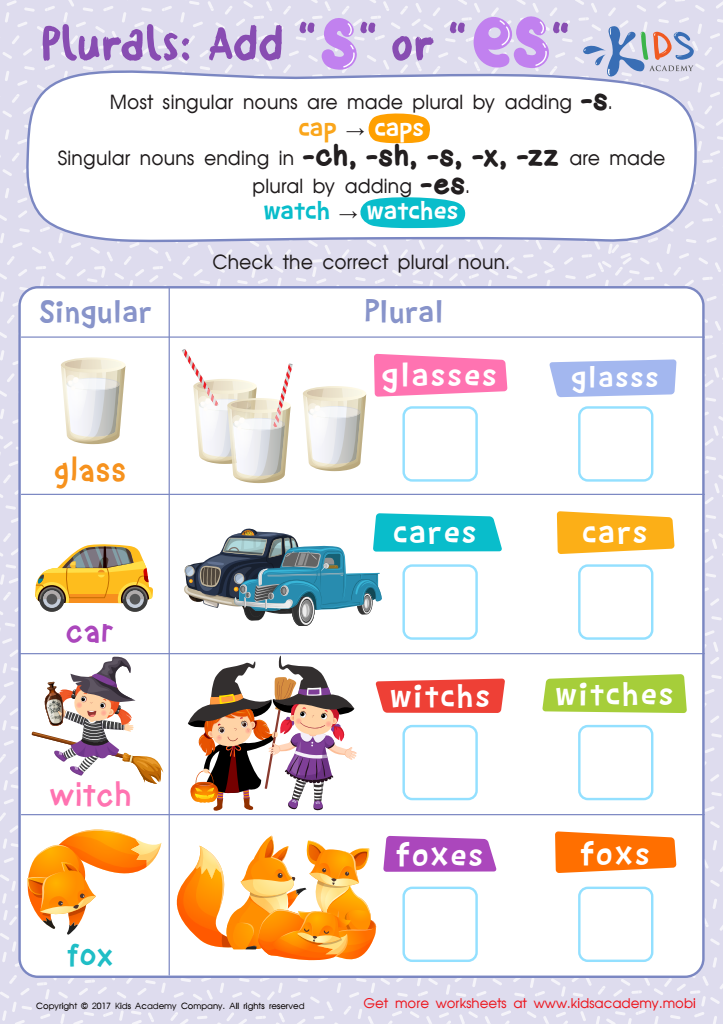

Plurals: "–es" or "–es"? Worksheet
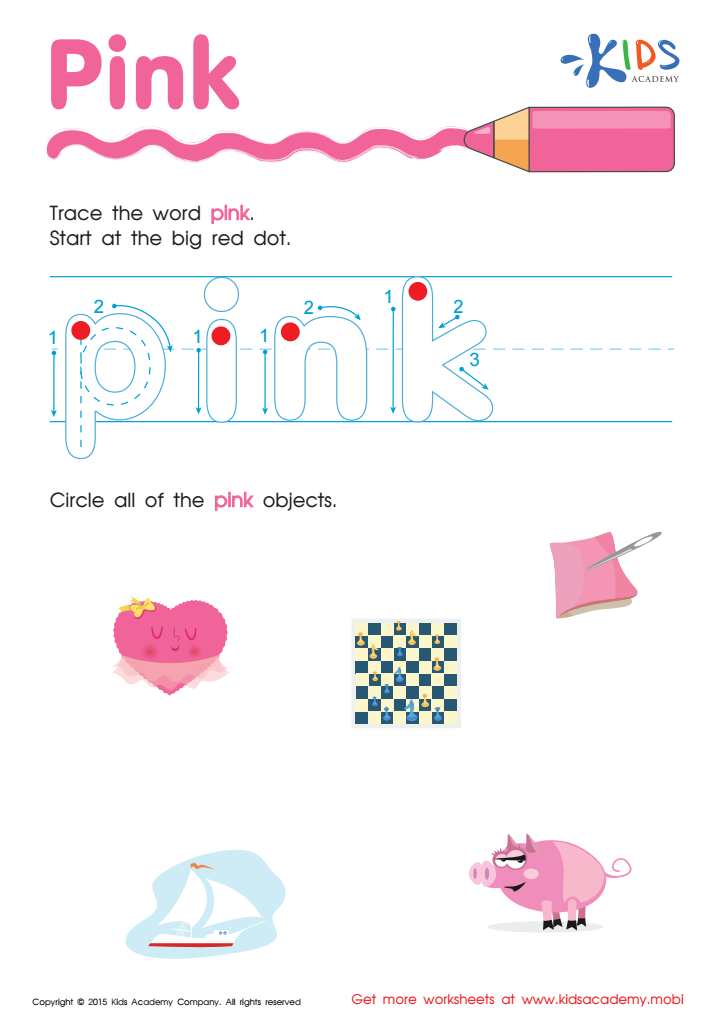

Pink Tracing Color Words Worksheet
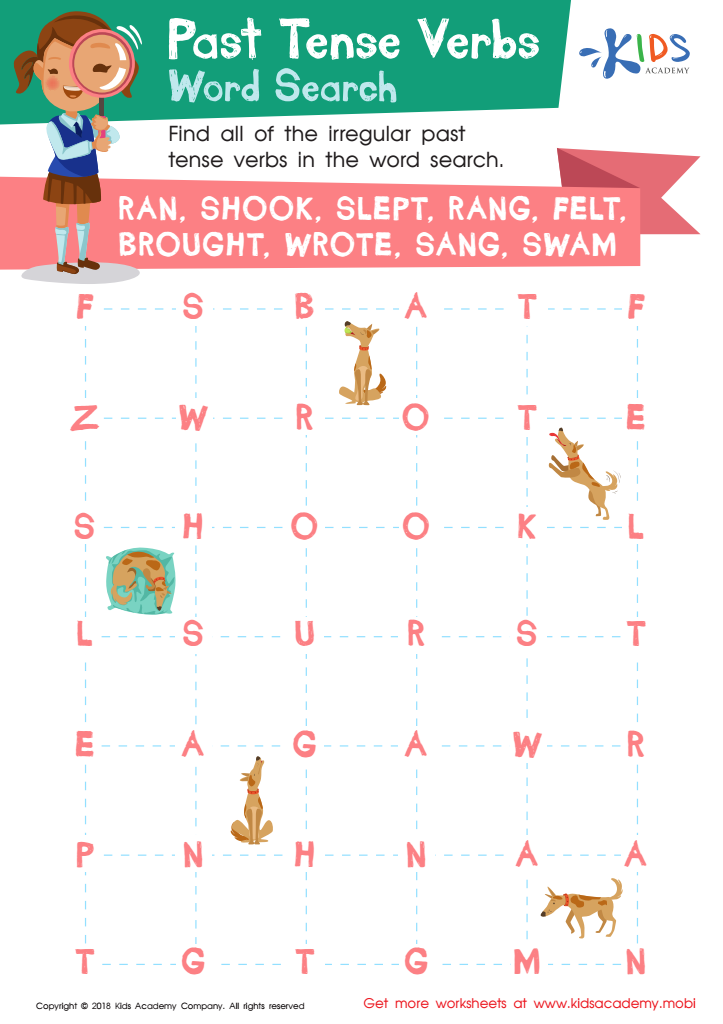

Past Tense Verbs Word Search Worksheet
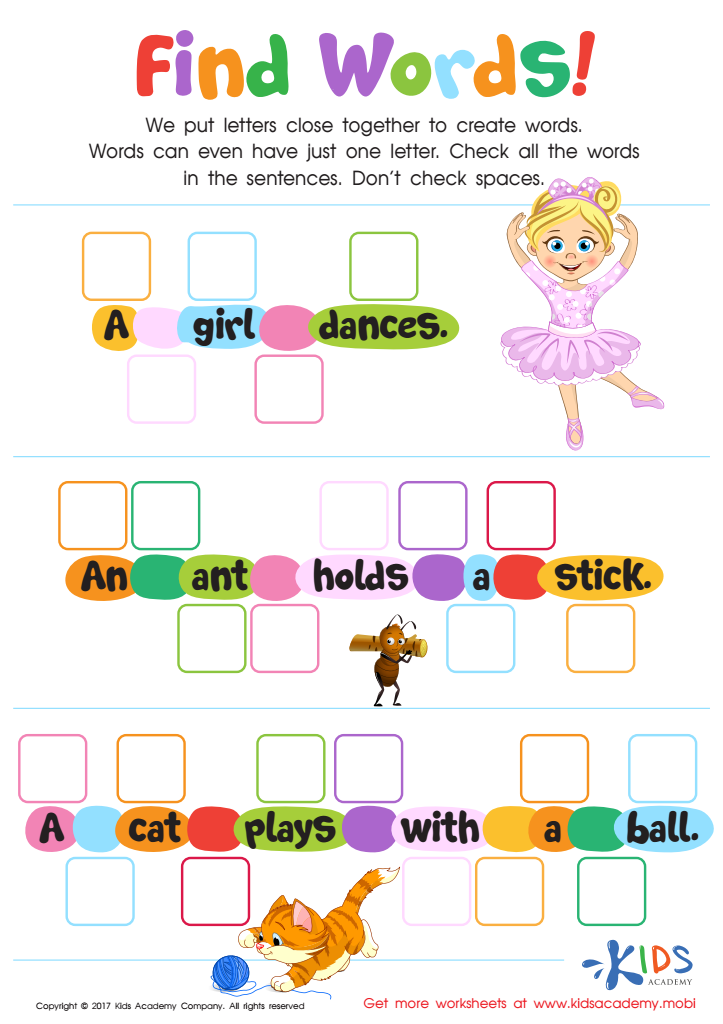

Find Words Worksheet
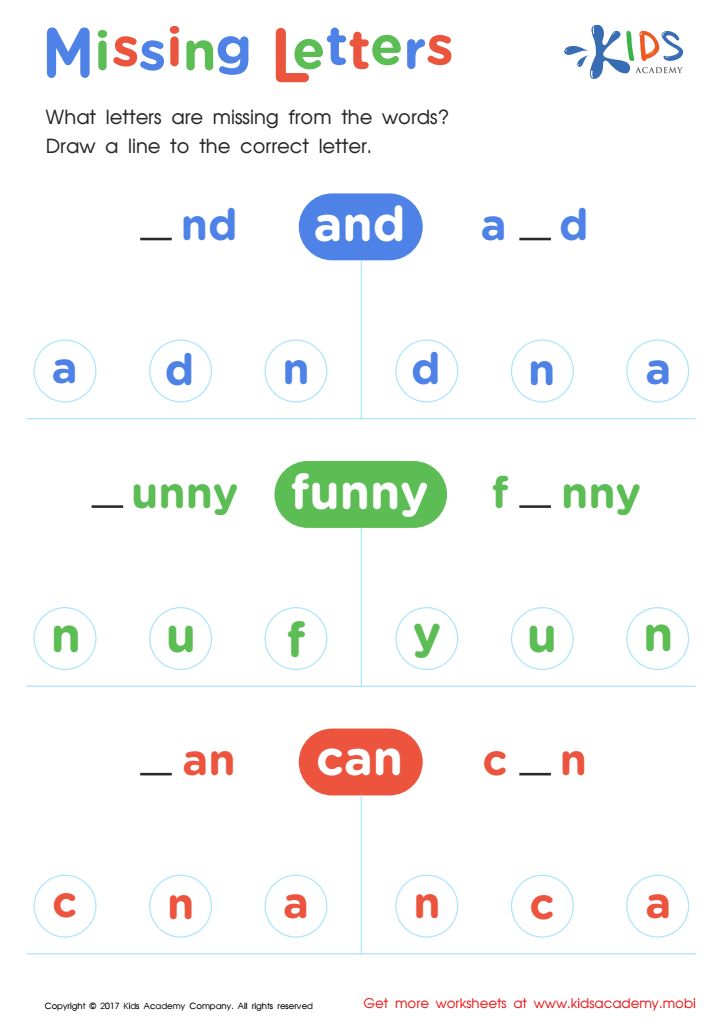

Missing Letters Worksheet
Spelling improvement in writing for children aged 3-7 is crucial for several reasons. First, it lays the foundation for literacy skills, which are essential for effective communication. At this early stage, children are developing their understanding of letter sounds, phonetics, and word structure, all of which contribute to their ability to spell correctly. Improved spelling not only enhances their writing but also boosts their reading comprehension, allowing them to recognize words and their meanings more readily.
Additionally, mastering spelling builds confidence in young learners. When children can spell words correctly, they are more likely to feel proud of their writing and more willing to share it with others, fostering a love for learning. This sense of accomplishment encourages them to engage more deeply with language arts.
For parents and teachers, focusing on spelling development reinforces overall educational success. It enables caretakers to provide targeted support that can shape a child's future learning experiences. Furthermore, strong spelling skills promote critical thinking and problem-solving as children learn to identify patterns in language. Thus, investing time in spelling improvement at this foundational age is pivotal for fostering effective communicators and lifelong learners. It lays the groundwork for academic success, self-esteem, and creativity in expression.
 Assign to My Students
Assign to My Students















